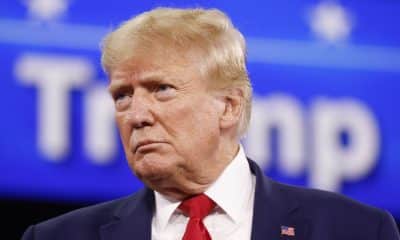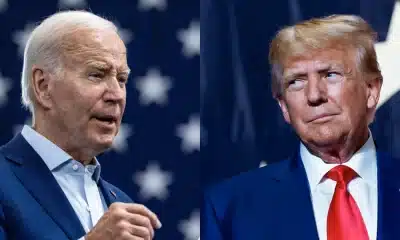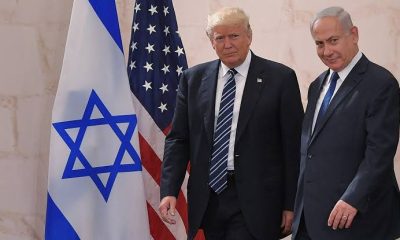World News
López Obrador, the new Mexican president who has been compared to Chavez, Lula and even Trump
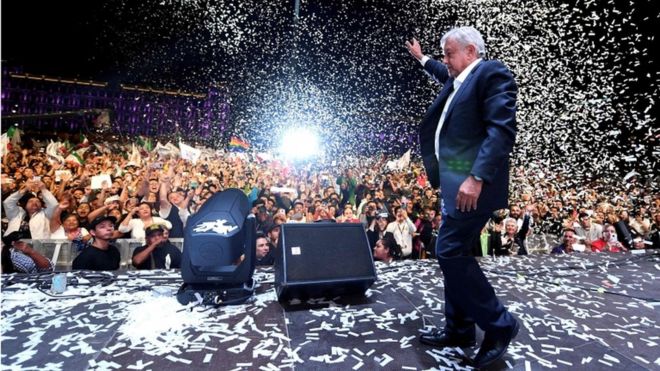

Leftist candidate Andrés Manuel López Obrador confirmed his favoritism and was elected on Sunday the new president of Mexico , in an election considered historic both by the number of jobs in dispute – more than 18,000 at local and federal level – and by the high levels of violence and radical change of power.
AMLO, as it is known, had more than 53% of the vote, more than double of its closest rival, becoming the first leftist president of the country in decades.
In a speech at a central plaza in the Mexican capital to celebrate his victory, AMLO told fellow members that his priority will be to fight corruption and impunity.
“Whoever he is, (the corrupt) will be punished. Even if he is a fighting companion, employee, friend or relative.”
AMLO also said that he synthesizes his vision of government in a sentence: “For the good of all, first the poor”.
“The changes will be profound, but they will be realized within the established order. There will be freedom of enterprise, expression, association and beliefs.”
The former mayor of Mexico City (2000-2006) is elected president in his third attempt and with a platform focused on fighting corruption, at the end of “perks” to politicians and businessmen, to improve the quality of life of the poor and review of privatizations in the oil sector.
“We will cleanse public life in Mexico,” he said at a recent rally.
Born in 1953 in the southern state of Tabasco, AMLO is the son of merchants and studied Political Science and Public Administration at the National Autonomous University of Mexico (UNAM).
He is known for arousing both loyalty and unconditional rejection, a characteristic that has already led him to be compared to other leaders of the continent: Venezuelan Hugo Chavez, Brazilian Luiz Inacio Lula da Silva and, interestingly, even American Donald Trump.
Violence, reforms and market
López Obrador will assume a country with historically high levels of violence, in the midst of a war between drug trafficking cartels and security forces.
The country recorded a record 25,000 homicides last year, a figure that is set to increase this year, according to experts
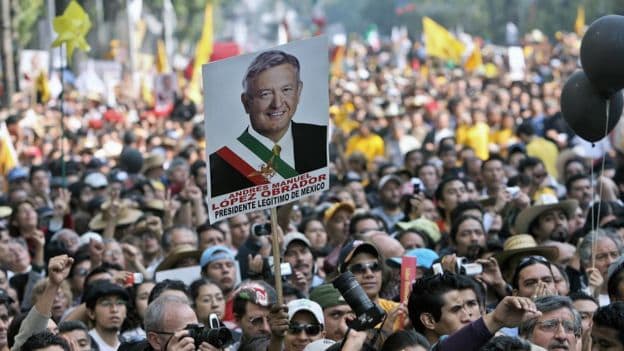
AMLO has been nationally projected as mayor of Mexico City, with a speech of austerity and anti-corruption
Violence also erupted in the election campaign, during which more than 120 politicians were murdered.
The scenario, coupled with corruption scandals, has negatively impacted the popularity of the current president, Enrique Peña Nieto, of the PRI (Partido Revolucionario Institucional), who leaves the post with less than 20% approval. In 2012, when he took office, he even surpassed 60% of approval.
And it was also with criticisms of the traditional politics and the macroeconomic conditions that López Obrador conquered much of his electorate.
“The policies we have been pursuing over the past 30 years have not worked out. We have not even had economic growth,” he said at his last rally on Wednesday. “What has grown is corruption, poverty, crime and violence, so let’s put those policies in the trash can.”
AMLO had already tried the presidency twice before by the Democratic Revolution Party (in 2006 and 2012, when it lost to Peña Nieto), without success. Now, he posed for the National Regeneration Movement (Morena), which he founded four years ago and today he tries to establish himself as the second main political force in the country.
He is viewed with skepticism by the financial market and the Mexican business community for his long-standing criticism of neoliberalism and his pledge to reverse some of the energy sector reform as regards the private exploitation of Mexico’s oil reserves.
These characteristics have already made him compared to Lula, who also faced resistance from the market when he was first elected in 2002.
AMLO supporters say the new president is no longer as radical as in the past and recalls that he recruited advisors close to the financial market as a conciliatory nod.
History
López Obrador will also face the disbelief of a considerable part of the Mexican middle class, who sees him as a messianic radical and who fears that the country will implement socialist and nationalist policies similar to the Venezuelan ones, initiated by Hugo Chávez.
In past lawsuits, AMLO came to be called “a danger to Mexico,” a criticism that calls it a “dirty war”.
He emerged in politics in the 1980s as a PRI militant in the south of the country and, in the following decade, in activism in defense of indigenous causes. In his home state of Tabasco, he even led dozens of indigenous protests against ecological damage caused by the exploitation of oil in communities.
In the city hall of Mexico City, he created municipal retirement systems and distributed free school material to students of basic education. By this time he was known for his discourse on austerity and anti-corruption, which led him to create a legion of “fervent followers,” explain political analysts.
For part of the electorate, “he has become a myth and this is his success in national politics,” say historians Saray Curiel and Alfonso Argote, authors of a biography of AMLO.
They concluded that the candidate cultivates among his followers the idea that Mexico needs a “savior to rescue”, something critics also use to draw parallels with Chavism.
Advocates say their discourse of zero tolerance for corruption and attention to the poor has earned them support among liberal professionals and among the younger electorate.
With regard to the fight against violence, its promises so far have been considered vague, generally focused on an amnesty to smaller traffickers and a “smarter” view of coping with crime.
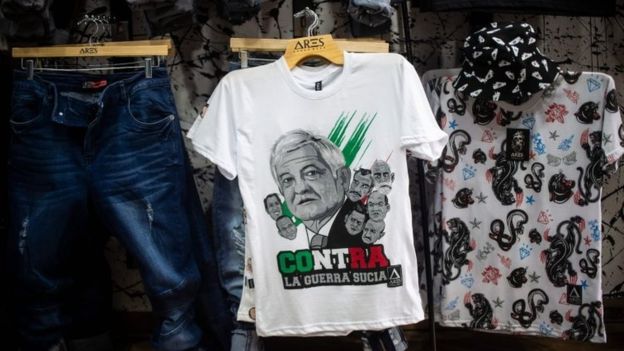
Candidacy was fueled by corruption scandals in the current government
Relations with the US – and Trump
At the same time, the new president assumes at a time of especially thorny relations with his main neighbor, the US, because of policies against immigration and a commercial war.
AMLO was a strong critic of Trump during the election campaign, calling for “respect for Mexicans,” promising to put the US president “in his place” and rejecting the neighbor’s immigration policy.
Curiously, his record of strong, populist statements, his critiques of free trade, and his popularity in presenting himself as an alternative to traditional politicians also earned him comparisons with the American president at a time of record rejection of the party status quo in both countries.
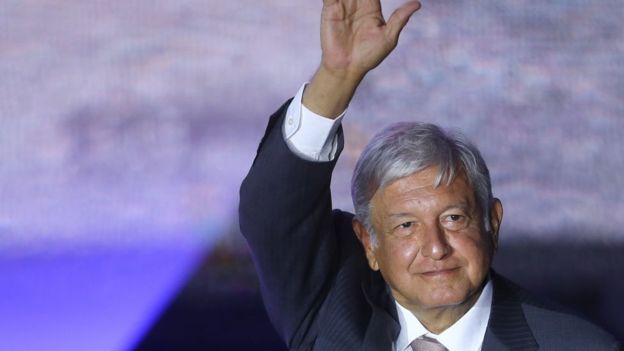
Andrés Manuel López Obrador is the first leftist in decades to take power in Mexico
“He (López Obrador) ended up being the right candidate for the current moment, the antisystem candidate,” Francisco Abundis, founder of the research company Parametría, told Nigeria News.
But one crucial difference from billionaire Trump is that AMLO cultivates a simple lifestyle and promised to “rule by example, with austerity.” He said he will cut his salary, continue to live in his middle-class home in Mexico City and turn the presidential palace into a cultural center.
“No chavismo, no trumpism … but yes to Mexicanism,” said AMLO by Twitter, of which he is also a frequent user.

